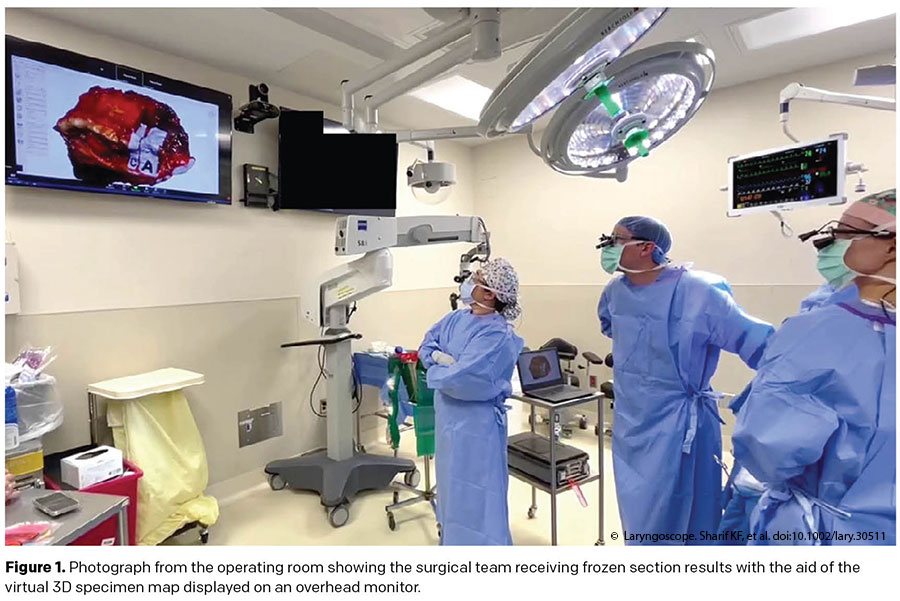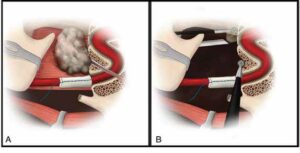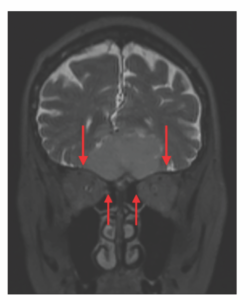Clinical and patient-reported outcomes revealed a similar presence and prevalence of dysphagia and swallow-related quality of life at subacute and long-term time points, regardless of primary treatment strategy.
Upfront Transoral Laser Microsurgery May Offer Survival Benefit Over Radiotherapy in Patients With Early-Stage Supraglottic Squamous Cell Carcinoma
An upfront Transoral Laser Microsurgery-based surgical approach to T2N0 SSCC may offer an overall survival benefit compared with definitive Radiotherapy in Patients with Early-Stage Supraglottic Squamous Cell Carcinoma.
Elective Neck Dissection Does Not Improve Survival Rate but May Have Prognostic Role in Oral Cavity Mucosal Melanoma
Elective Neck Dissection does not improve survival rate but may be useful for staging and identifying candidates for treatment intensification, as well as for offering prognostic information to the patient.

How To: Enhanced Intraoperative Communication of Tumor Margins Using 3D Scanning and Mapping
Given the high rate of positive surgical margins in head and neck cancer, there is a need to improve margin analysis technique and intraoperative communication protocols.

How To: Nasopharyngectomy without Maxillary Swing via a Combined Open Lateral and Endoscopic Approach
This method combines a lateral transcervical approach to provide proximal internal carotid artery (ICA) control and early visualization without the morbidity of a maxillary swing.

What Is the Role of Induction Chemotherapy in the Treatment of Locally Advanced Sinonasal Squamous Cell Carcinoma?
Sinonasal neoplasms have a wide spectrum of histopathologies and biological behaviors, but close proximity to critical structures, such as the skull base and orbit, can make surgical resection a challenge.
Study Establishes SUVmax Cutoffs to Discriminate Benign and Malignant Lesions in the Palatine Tonsils
Tonsillectomy for patients with IFT displaying SUVmax >9.0, ratio >1.5, or symptoms or findings suggesting malignancy is recommended.

How To: Endoscopic Medial Orbitotomy for Lateral Access to Anterior Cranial Base Pathology
This technique may help to further expand the role of endoscopic endonasal approach for experienced skull-base teams.
Stimulated Raman Histology a Promising Adjunct, Alternative to Frozen Section in Sinonasal and Skull Base Tumor Diagnosis
Stimulated Raman histology can rapidly produce images similar to FFPE H&E in sinonasal and skull base tumors.
Extended Reality Technology in Otolaryngology Education Is Currently Limited to Virtual Reality
Evaluating the current state of extended reality use in otolaryngology education.
- « Previous Page
- 1
- …
- 3
- 4
- 5
- 6
- 7
- …
- 42
- Next Page »